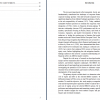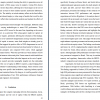Тема: Cost of debt and equity in BRICS countries: can better ESG perfomance decrease corporate financing costs?
Закажите новую по вашим требованиям
Представленный материал является образцом учебного исследования, примером структуры и содержания учебного исследования по заявленной теме. Размещён исключительно в информационных и ознакомительных целях.
Workspay.ru оказывает информационные услуги по сбору, обработке и структурированию материалов в соответствии с требованиями заказчика.
Размещение материала не означает публикацию произведения впервые и не предполагает передачу исключительных авторских прав третьим лицам.
Материал не предназначен для дословной сдачи в образовательные организации и требует самостоятельной переработки с соблюдением законодательства Российской Федерации об авторском праве и принципов академической добросовестности.
Авторские права на исходные материалы принадлежат их законным правообладателям. В случае возникновения вопросов, связанных с размещённым материалом, просим направить обращение через форму обратной связи.
📋 Содержание
Introduction 5
1. Literature review 6
1.1. ESG and cost of debt 6
1.2. ESG and cost of equity 7
1.3. ESG and cost of capital in emerging markets 9
1.4. Research gap 10
1.5. Problem statement and hypotheses 11
3. Data 13
3.1. Why drop I and C from BRICS? 13
3.2. Data sourcing and sampling 14
3.3. Variables 15
3.4. Descriptive statistics 16
3.5. VIF test 17
3.6. Modelling cost of equity 20
3.7. Modelling cost of debt 21
3.8. WACC 21
4. The model 22
4.1. Statistical significance and robustness tests 23
4.2. Addressing potential Endogeneity 24
4.3. Choosing the right model 25
5. Results and discussion 25
5.1. Managerial implications 39
6. Conclusion 42
7. Appendix 45
7.1. Descriptive statistics for country breakdown 45
7.2. Robustness checks 50
8. List of references 55
📖 Введение
Despite the wide array of research on developed markets, the BRICS nations present a unique case for examination due to their diverse institutional structures, varying levels of market maturity, and distinct regulatory landscapes. The BRICS economies, characterized by rapid industrial growth and significant environmental and social challenges, offer a fertile ground for investigating the potential of ESG factors to influence corporate financing costs. The limited scholarly focus on these markets, particularly on Russia, Brazil, and South Africa, highlights the substantiality of the research gap.
The primary objective of this thesis is to determine whether ESG disclosures impact the cost of equity and debt in the selected BRICS markets. This study will also explore the differential impact of ESG scores on top ESG performers versus underperformers within these markets. To reach this objective, this study employs a comprehensive dataset spanning multiple years and incorporates panel regression models to analyze the relationship between ESG scores and cost of capital across the selected BRICS nations. By distinguishing between top ESG performers and underperformers and examining country-specific contexts, this research aims to provide valuable insights for both academic inquiry and practical applications in corporate finance and investment strategies.
✅ Заключение
Importantly, the study also uncovers that the relationship between ESG performance and cost of capital is stronger for top performers (top 25%) than for underperformers (bottom 25%). This finding, supported by Cardoso (2020) and Fatemi et al. (2018), suggests that the benefits of high ESG performance are more pronounced for firms already excelling in ESG metrics. These firms experience more significant reductions in financing costs, highlighting the importance of achieving and maintaining high ESG standards. These insights carry some implications for corporate managers and investors. For equity investors, particularly in emerging markets like Brazil, prioritizing ESG factors can significantly mitigate risks and enhance portfolio performance. Debt holders, while benefiting to a lesser extent, still gain from improved creditworthiness and reduced borrowing costs associated with better ESG scores. For corporate managers, the findings advocate for a strategic focus on ESG improvements, especially for firms lagging in ESG performance, to leverage the financial benefits of enhanced sustainability practices.
Overall, this thesis contributes to the growing body of literature on ESG and corporate finance by providing a detailed comparative analysis of the BRICS markets. It highlights the importance of context-specific strategies and the potential for significant financial gains through improved ESG performance. Future research should continue to explore these dynamics, considering additional variables and broader datasets to further refine our understanding of ESG impacts on financial outcomes in diverse economic and regulatory environments.





